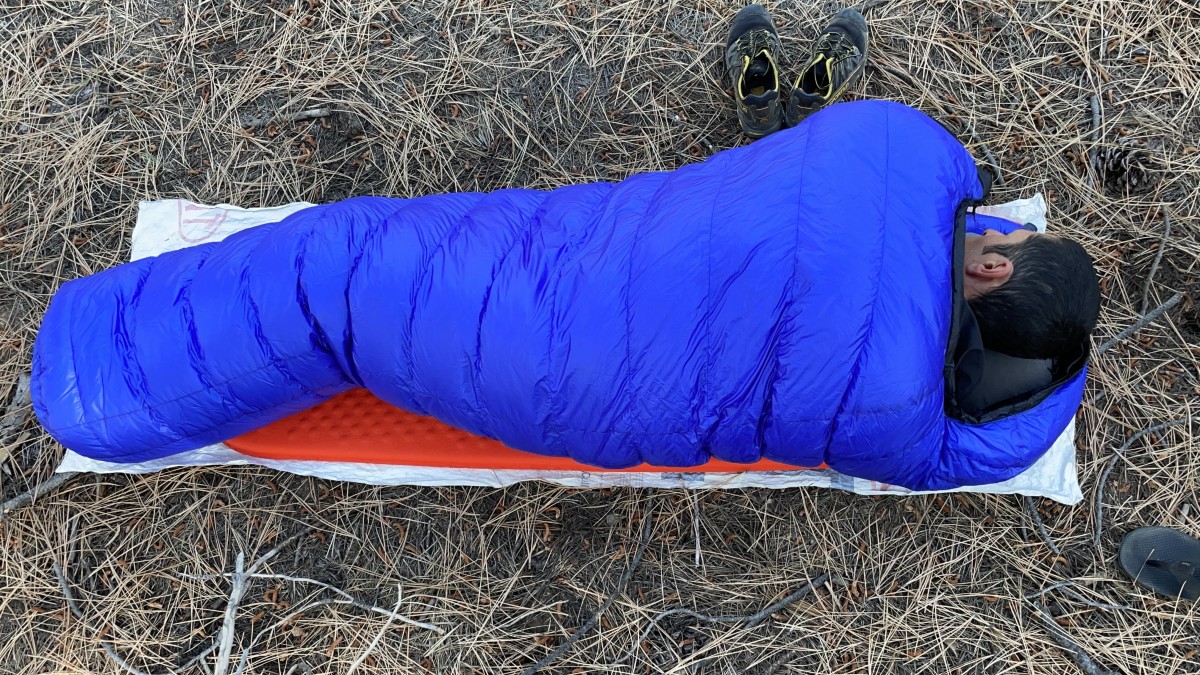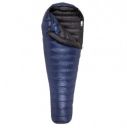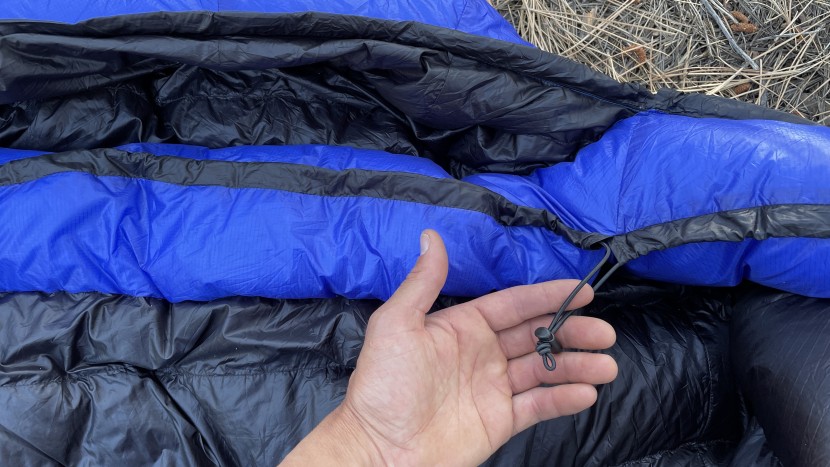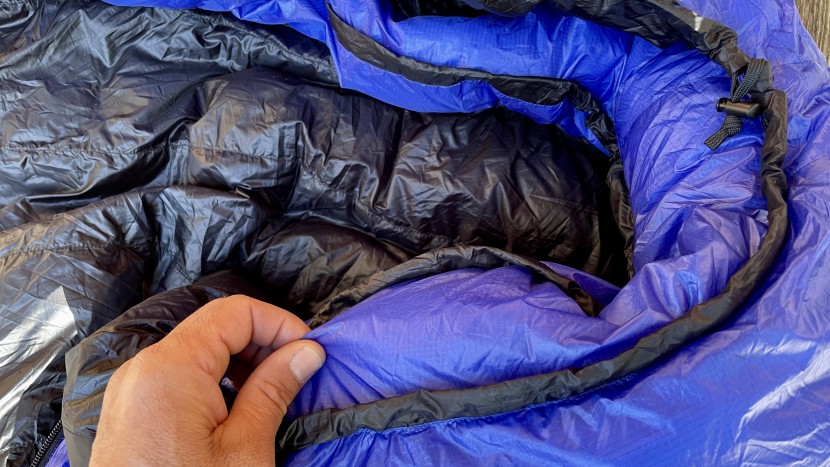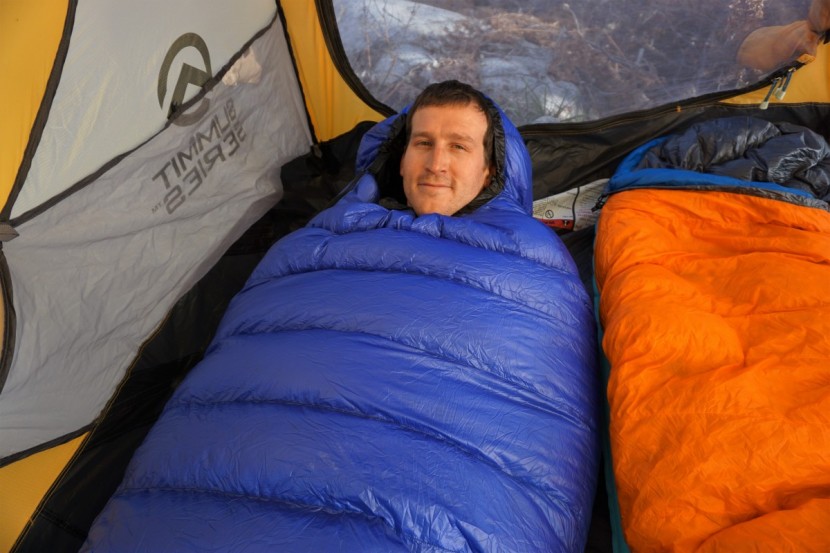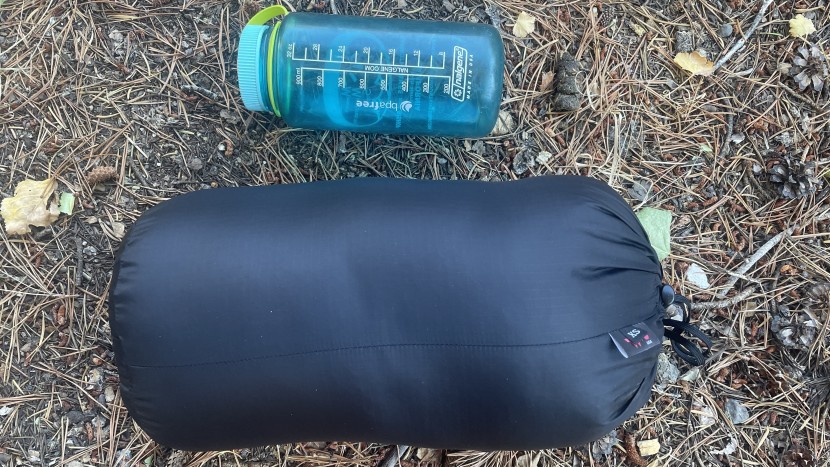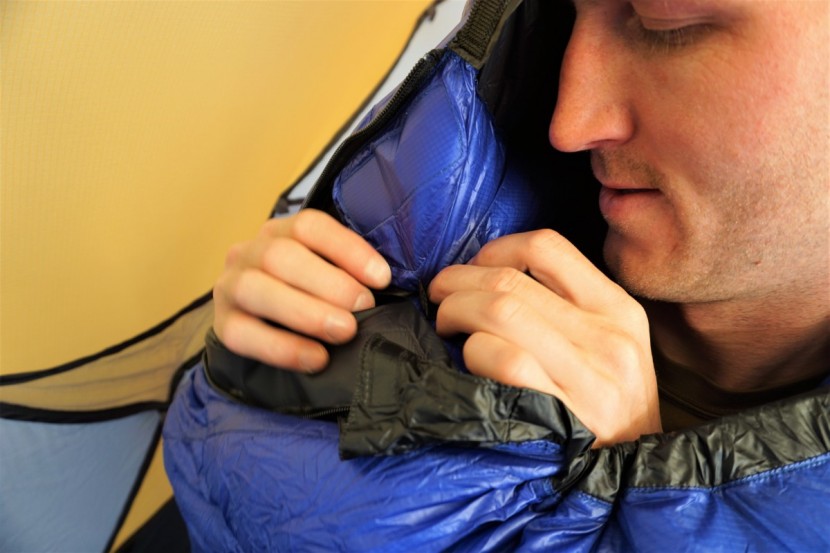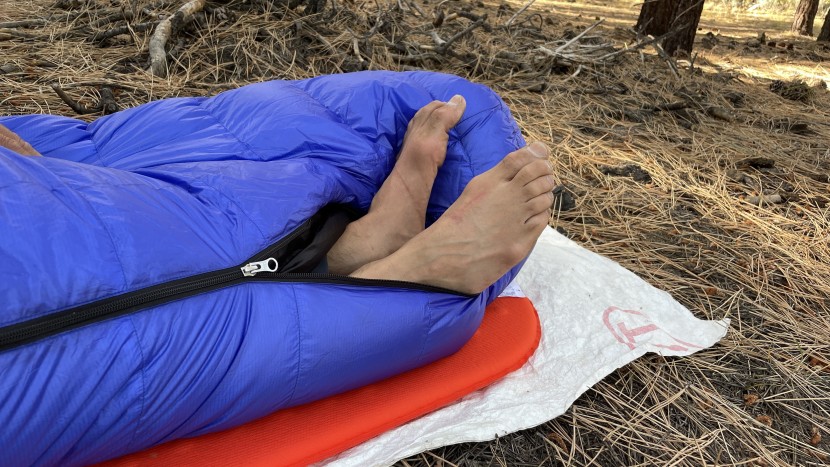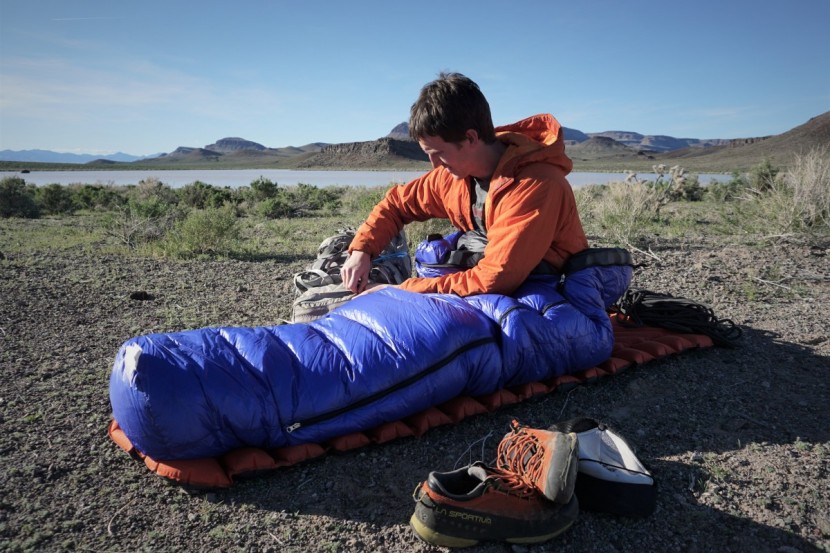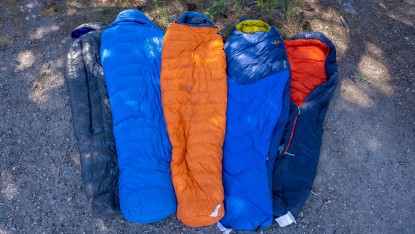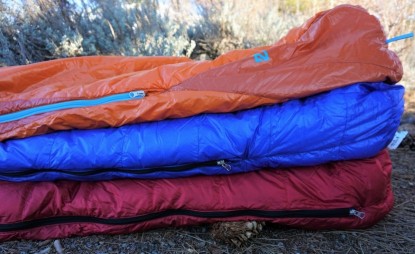Our Verdict
Compare to Similar Products
 This Product
Western Mountaineering UltraLite | |||||
|---|---|---|---|---|---|
| Awards | Best for Colder 3-Season Conditions | Best Overall Backpacking Sleeping Bag | Best for Fast and Light Adventures | Best Budget Down Sleeping Bag | Best Budget Synthetic Sleeping Bag |
| Price | $610.00 at Amazon Compare at 2 sellers | $580.00 at REI Compare at 3 sellers | $549 List $549.00 at Feathered Friends | $285.00 at REI Compare at 2 sellers | $100 List $99.95 at REI |
Overall Score  |
|||||
| Star Rating | |||||
| Bottom Line | The best bag for the coldest shoulder season nights | If we could only have one bag for the rest of our lives, this would be it | The ideal bag when you need the warmth, but ounces matter too | This inexpensive model has decent warmth for the weight, and features that are well thought out | This bag is comfortable and has decent features - pair this with a bargain price and it's a great deal |
| Rating Categories | Western Mountaineer... | Western Mountaineer... | Feathered Friends H... | Mountain Hardwear B... | REI Co-op Trailmade 20 |
| Warmth (25%) | |||||
| Weight (25%) | |||||
| Comfort (20%) | |||||
| Packed Size (15%) | |||||
| Features (15%) | |||||
| Specifications | Western Mountaineer... | Western Mountaineer... | Feathered Friends H... | Mountain Hardwear B... | REI Co-op Trailmade 20 |
| EN Temp Rating (Lower Limit) | 14°F | 21°F | 30°F (not EN rated) | 15°F | 21°F |
| Insulation | 850+ FP Down | 850+ FP Down | 950+ FP Down | 650 FP Duck Down | Synthetic - recycled polyester |
| Measured Weight | 1.8 lbs | 1.5 lbs | 1.3 lbs | 2.3 lbs | 3.2 lbs |
| Compression/Stuff Sack Weight | 1.0 oz | 1.0 oz | 1.0 oz | 1.9 oz | 1.6 oz |
| Fill Weight | 17.0 oz | 13.0 oz | 12.0 oz | 21.0 oz | 34.9 oz |
| Shell Material | 12D Extremelite | 12D Extremelite | 10D Pertex Endurance | 20D ripstop nylon | Recycled polyester |
| Liner Material | 12D nylon taffeta | 12D nylon taffeta | 15D ripstop nylon | 30D nylon | Polyester |
| Hydrophobic Down? | No | No | No | No | N/A |
| Neck Baffle? | Yes | No | No | Yes | No |
| Small Organization Pocket? | No | No | No | Yes | Yes |
| DWR Treatment? | Yes | Yes | No | No | Yes |
| Zipper Info | Full-length / side | Full-length / side | Full-length / side | Full-length / left | Full-length / left |
| Shoulder Girth | 59 in | 64 in | 58 in | 62 in | 62 in |
| Hip Girth | 51 in | 56 in | 52 in | 53 in | 58 in |
| Foot Girth | 38 in | 39 in | 38 in | Not listed | 40 in |
| Compression or Stuff Sack? | Stuff sack | Stuff sack | Stuff sack | Stuff sack | Stuff sack |
Our Analysis and Test Results
If your budget lets you shop for the absolute best backpacking sleeping bag, you will likely end up with a choice between Western Mountaineering and Feathered Friends bags. These boutique firms make some of the highest quality down products on the continent. You pretty much can't go wrong either way. But to help you out a little, the UltraLite sets itself apart with a legit draft collar that ensures you can seal all your body heat in on colder nights.
Warmth
While it's not advertised on the Western Mountaineering website, this bag does get an EN Temperature Rating. It has a Comfort rating of 25°F and a Limit rating of 14°F. Our testers believe the UltraLite is one of the warmest 3-season bags we have tested. Its 17 ounces of 850+ fill power down seems to supply more warmth than the other 20°F models in our review.
This superior performance is partly due to the substantial draft collar on the UltraLite. Not only does the collar keep drafts out, but it also holds heat in. When the cold creeps in, the collar can be cinched closed with the internal drawstring, and it's effective at sealing heat inside the main compartment of the bag. Because the drawcord is stretchy, we didn't find it to be overly restrictive. Some testers, however, consider the same collar to be unnecessary weight for most 3-season temperatures. Maybe so. But in colder spring and fall conditions or at high altitudes, you won't have to worry about staying warm with this bag. The inclusion of the draft collar also arguably extends the UltraLite's usefulness to mild winter applications — depending on your layering choices, shelter, and the rest of your sleep system.
The horizontal baffle construction means that its down insulation is sewn into fabric tubes, or baffles, that are perpendicular to the length of the bag. These baffles are continuous, which allows you to shift the insulation to the top or underside of the bag, depending on conditions. On colder nights, moving more feathers above your body will ensure more heat is trapped inside. In warm conditions, do the opposite and shift feathers below your body to allow excess heat to escape. You don't have the same option with vertical baffles or synthetic insulation.
Weight
Despite providing best-in-class warmth, this bag weighs in at an impressive 1.8 pounds in the 6' 0" length. Although this is near the middle of our total field of sleeping bags, it compares favorably with bags that provide similarly high insulation levels.
For cold nights, we consider the extra ounces of the UltraLite to be well worth the weight. Its overall warmth-to-weight ratio is also among the highest we've seen. The weight of this bag should not dissuade anyone from purchasing it.
Comfort
Unfortunately, the UltraLite does not offer quite the same comfort as its outstanding Western Mountaineering relatives. Sure, it can boast the same cozy down and soft ExtremeLite fabric, but its somewhat narrower dimensions don't provide the same spacious comfort.
These dimensions, however, are similar to most of the other standard mummy bags we tried. The UltraLite would thus earn an average comfort score were it not for its gentle, cloud-like loft that caused us to give it an extra point. We think that most backpackers will find it to be reasonably comfortable.
Packed Size
A common consequence of lots of warm insulation is a larger packed size. The UltraLite is no exception. Using an aftermarket compression sack, we were able to squeeze this bag down to 9 liters in total volume.
Shoppers should keep in mind, however, that per liter of pack space, this bag offers unrivaled warmth. Moreover, the difference between the biggest and smallest bags in this review was not especially large. When compared to more distant competitors, the UltraLite is relatively small. Like with weight, we don't think packed size should be anyone's reason to avoid purchasing this high-quality bag.
Features
Although the UltraLite lacks many of the fancier features of other bags, simpler is sometimes better. The absence of an organizational pocket or additional venting zippers was noted (and sometimes missed), but it helps this bag save weight and space in a pack.
Meanwhile, the only arguably unnecessary feature, a functional draft collar, is the defining characteristic that sets the UltraLite apart from its closest competitors in terms of warmth and versatility. Thus, when you consider both the features this bag does and does not have, its overall design makes more and more sense.
Of the few features this simple bag does sport, the long zipper is one of the most useful. It let our testers put some targeted ventilation on sweaty, stinky, or damp feet without allowing too much cold air into the bag. It also allows you to open the bag up all the way.
Should You Buy the Western Mountaineering UltraLite?
If you are the kind of backpacker who likes to keep their pack light and their gear closet uncluttered, the UltraLite could be a great choice. Because this bag is warmer than the competition, it can be more comfortably used later in the fall and earlier in the spring. For folks who like to get out all year, this bag and a zero-degree bag could cover you. While it's far from cheap, we believe the UltraLite is actually a great value when you factor in the weight and performance benefits you get to enjoy over its 10+ year lifespan.
What Other Backpacking Sleeping Bags Should You Consider?
While the UltraLite is a fantastic sleeping bag, not all backpackers need the extra warmth. For those looking for a high-performing bag who don't venture out much beyond summer — or who won't be in higher and colder places — the Feathered Friends Hummingbird UL 30 provides all the same features but isn't quite as warm. The benefit of this trade-off is that it's lighter and takes up a bit less space in your pack. Readers who balk at the price tag of the UltraLite might want to click over to the REI Co-op Trailmade 20. It has a decent feature set and a shockingly low price tag. Backpackers who also camp out in the front country could even find that the Trailmade and UltraLite together make a great quiver.


